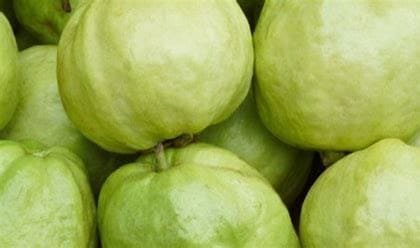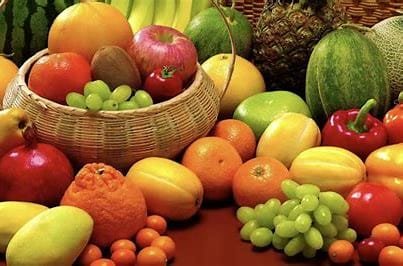Introduction

Low-carb diets have been a hot topic of late, as they have been helpful in losing some weight, regulating blood sugar, and leading a healthy lifestyle. In a low-carb diet, most people tend to stay away from fruits because they contain sugar. However, there are fruits that are innately low in carbs, rich in nutrients, and thus good for those who want a balanced and healthy low-carb lifestyle. Here are the best low-carb fruits and the key nutrients they provide.
1. Avocado
Carb Content: 9 grams per 100 grams, with 7 grams of fiber (2 grams net carbs).
Key Nutrients: Rich in healthy monounsaturated fats, potassium, and fiber.
Benefits: Avocado is technically some fruit, although used more as a savory. Its high fiber makes it stable for blood sugar, and its healthy fats are good for heart health, so great for low-carb and keto diets. The potassium is also very good, considered a source of electrolytes.
2. Strawberries Carb Content:
8 grams per 100 grams, with 2 grams of fiber (6 grams net carbs).
Key Nutrients: Good source of vitamin C, manganese, and antioxidants.
Benefits: Blackberries are a sweet option, but the glycemic load is very low, so the blood sugar won’t shoot through the roof. They are also high in antioxidants and vitamin C, which is very good for immunity and healthy skin. They can be eaten fresh or used in smoothies to make for a very refreshing snack that is filling and healthy, too.
3. Blackberries
Carbs: 10 grams per 100 grams, with 5 grams of fiber (5 grams net carbs).
Rich in vitamins C and K, manganese, and fiber.
Benefits: High fiber content in blackberries leads to better digestion and increased satiety. Antioxidants in blackberries prevent oxidative stress and are heart-friendly when used for low-carb diets. Raspberries have a slightly tart flavor, so they can be used in salads or mixed with yogurt.
4. Raspberries
Carb Content: 12 grams per 100 grams, 6 grams of fiber, or 6 grams net carbs.
Key Nutrients: Rich in fiber, vitamin C, and antioxidants.
Benefits: Raspberries stand out among the best fruits that suit a low-carb diet since they boast one of the best fiber-to-carb ratios. Antioxidants from raspberries confer anti-inflammatory effects, help with healthy skin functions, and defend against several aspects of aging. Enjoy that vibrant red color and sweet-tart flavor in your recipes without it being a showstopper on your carbs.
5. Watermelon Carbs:
8 grams per 100 grams, under 1 gram of fiber (8 grams net carbs).
Good source of vitamins A and C, hydrating.
Advantages:
This fruit is low in carbohydrates and calories. Hence, it is the perfect snacking choice when a scorching hot day wants you to quench the thirst. It is fiber-poor but is extremely hydrating; hence, it does not leave you feeling empty easily. Cantaloupe is also rich in lycopene, a significant antioxidant that prevents inflammation and ensures better heart health.
6. Cantaloupe

Carb Content: 8 grams per 100 grams, with 1 gram of fiber (7 grams net carbs).
Nutrients: Provides high content of vitamins A and C, potassium
Benefits: Another fruit that is hydrating, low in carbs, and juicy with sweetness. Very rich in vitamin A, hence a fresh fruit for salads or in smoothies’ refreshment low in carbohydrates. Vitamin C assists the body in increasing its immunity.
7. Peaches
Carb Content: 10 grams per 100 grams, with 2 grams of fiber (8 grams net carbs).
Principal Nutrients: Contains vitamins A, C, and potassium.
Advantages: Peaches are one of the best summer fruits that can sweeten without overloading with carbs. It contains many vitamins for healthy skin and good immunity. With a sensible count of carbohydrates, peaches may be sliced into yogurt or consumed alone, giving a crunchy and juicy snack for low-carb diets.
8. Lemons
Carb Count: 9 grams per 100 grams, 3 grams of fiber (6 grams net carbs).
Key Nutrients: Rich in vitamin C and antioxidants.
Benefits: Lemons are a very low-carb fruit that is great for adding flavor to dishes and beverages. Very rich in vitamin C, it is an excellent fruit that can boost the immune system, help the skin, and support detoxification. Its uses are highly versatile—flavoring water, taste enhancement of vegetables, and even in homemade salad dressing.
9. Coconut
Carbohydrates, 15 g; per 100 g: fiber 9 g, net carbs 6 g.
Healthy fats, fiber, and manganese.
Benefits: Coconut is high in fat and fiber content, making it a filling fruit that is low in carbs. It supports gut health since it is full of fiber, and the fats in coconut are a fast source of energy. The meat can be eaten raw, used as flakes, or blended into smoothies for an incredibly rich and tropical taste.
10. Tomato Carb Content:
3.9 grams per 100 grams, with 1.2 grams of fiber (2.7 grams net carbs).
Key Nutrients: Rich in vitamin C, potassium, and lycopene.
Benefits: People may treat tomatoes as vegetables, but they are really fruits. Tomatoes are low in carbs and calories but very high in antioxidants, for example, lycopene, which has been linked to heart health. They come in all sorts of salads and sauces, so they go with virtually any low-carb diet.
Tips for Incorporating Low-Carb Fruits in Your Diet
Watch Portion Size: Even low-carb fruits can add up in carbs if you consume too much. Stick to moderate portions to stay within your daily carb limit.
Choose Fresh Over Dried: Dried fruits are often higher in carbs and sugar than fresh varieties.
Pair with Protein or Fats: Combining fruits with a source of protein or healthy fats can help you feel fuller longer and stabilize blood sugar levels.
Conclusion

In case you want diversity and also fundamental nutrients in the low-carb diet plan that do not detract you from achieving your goals, the answer is low-carb fruits. From the choices, which include avocados, berries, tomatoes, and watermelon, many are found to satisfy and support what you crave on low carbs. Adding this fruit makes low carb eating enjoyable, sustainable, and beneficially healthy.



